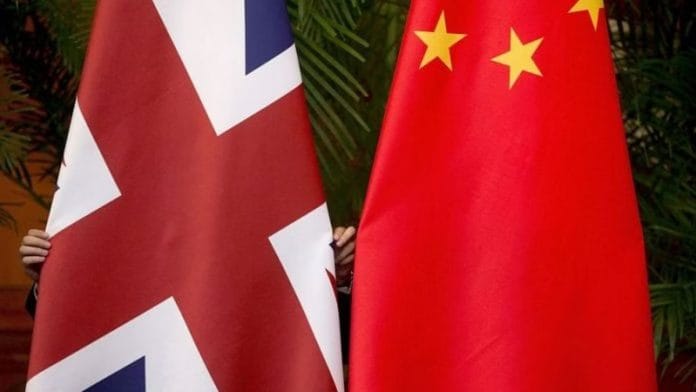New Delhi: A 50-year-old Chinese businessman, Yang Tengbo, also known as Chris Yang, stands accused of espionage and political interference in the UK on behalf of Beijing, and has been banned from entering the nation.
Yang, who was known for facilitating connections between the UK and China, particularly through his consultancy firm Hampton Group International that promoted UK-China trade, is alleged to have exploited his high-profile connections, including with Prince Andrew, a member of the British royal family, to enhance China’s influence abroad, say media reports.
Yang has responded to the charges against him by saying that he has done “nothing wrong or unlawful”.
Yang is believed to be associated with the United Front Work Department (UFWD), a central committee of the Chinese Communist Party (CCP) that is tasked with extending Beijing’s influence globally. The controversy sheds light on Beijing’s strategic deployment of the UFWD as well as raises concern about China’s influence in western democracies.
Yang seems to have turned from a promising diplomat to a controversial figure. Born in Yunnan, China, he began his career as a state employee before moving to the UK in 2002 to study public administration at the University of York.
Establishing himself as a businessman, Yang founded Hampton Group International and cultivated influential connections, including among members of British royalty.
In 2013, Yang was granted indefinite leave to remain in the UK, according to the BBC.
However, his ambitions came under scrutiny around two years ago when the UK authorities accused him of working with the UFWD. Data from confiscated devices and Yang’s affiliation with organisations such as the London-based 48 Group Club, which promotes trade between the UK and China, further triggered concern, according to media reports.
Despite Yang’s denial of links to the UFWD, the UK’s Special Immigration Appeals Commission earlier this month upheld a 2023 ban on his entry, citing national security concerns.
Earlier, British Chinese lawyer Christine Lee was accused of trying to interfere in British politics on behalf of Beijing.
Chinese influence in west & response
China’s influence in western democracies has increasingly drawn the attention of intelligence agencies and policymakers.
The UFWD, working to align overseas Chinese communities with the CCP’s interests, seems to be central to Beijing’s strategy. By embedding its soft power within diaspora networks, Beijing shapes public discourse abroad while subtly advancing its geopolitical objectives, it is alleged.
In Canada, Beijing allegedly uses donations and control over Chinese-language media to sway politicians and public opinion. The US has faced similar challenges, with intelligence agencies reporting attempts to interfere in elections and exert influence through Chinese-language media and lobbying efforts.
In Europe, China engages with political elites and academic institutions, allegedly leveraging cultural exchanges and educational initiatives to promote its governance model.
While these coordinated efforts seem to reflect Beijing’s long-term commitment to shaping global narratives, the Yang Tengbo row highlights the broader challenge of countering China’s influence.
In response, western nations have implemented targeted policies.
The US has spotlighted the UFWD and tightened regulations on foreign investment and lobbying activities. Public campaigns and increased counterintelligence funding are aimed at mitigating disinformation and foreign interference.
Similarly, the UK has strengthened its defences with measures like the National Security and Investment Act, complemented by intelligence units dedicated to monitoring foreign influence.
The European Union has focused on transparency in lobbying and fostering intelligence-sharing among member states.
(Edited by Nida Fatima Siddiqui)
Also Read: India’s national interest demands better China ties. Don’t let West influence it






